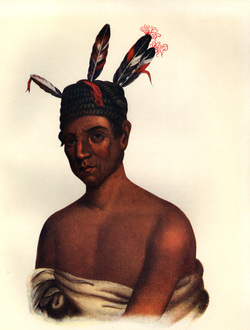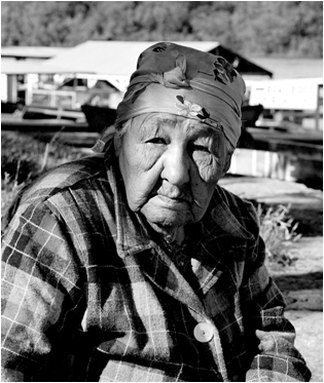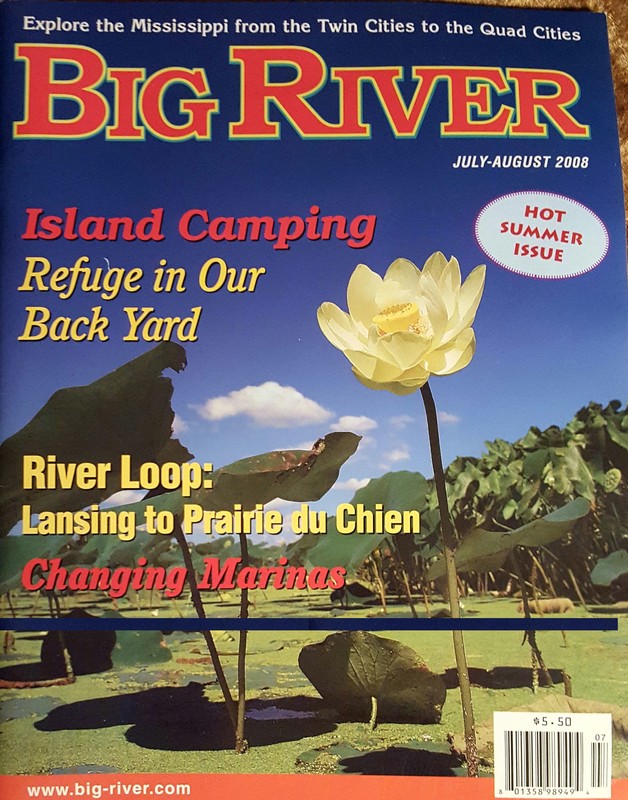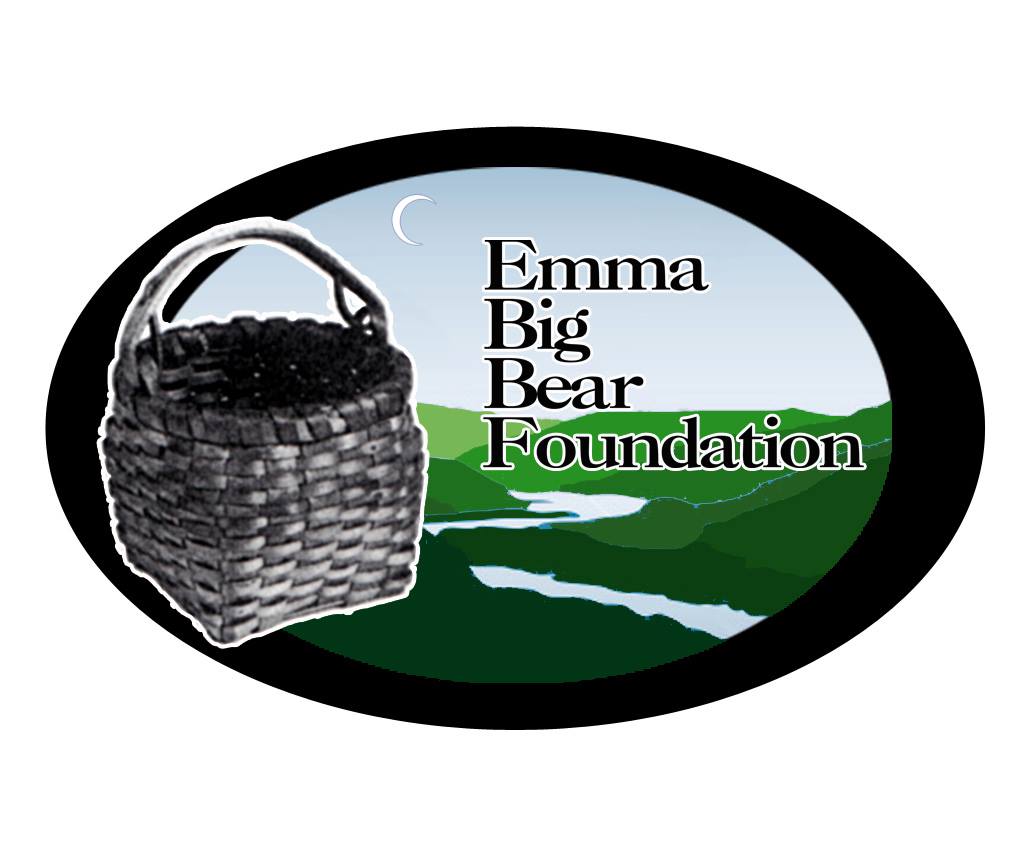|
History of Emma Big Bear
 Chief Waukon Decorah, EBB's Paternal Grandfather
Part of Marquette and McGregor, Iowa’s history lives on in the story of Emma Big Bear, born on July 5, 1869 to Chief Big Bear and Mary Blue Wing in a small frame home on the Winnebago Indian Reservation at Tomah, Monroe Co., Wisconsin. Emma spent her childhood and young adult life in Wisconsin, but lived mostly in and around small northeast Iowa Mississippi River towns. Emma claimed to be a direct descendent of early 19th Century Winnebago Chief Waukon Decorah (photo at right), refusing to live on a reservation by not wandering far from the graves of her ancestors, preferring to live in the prehistoric area near Effigy Mounds’ sacred space along the Mississippi River.
Emma’s first husband was Little Beaver, also a Winnebago, about which little is known. Emma and her second husband, William J. “Henry” Holt of Winnebago and Sioux parentage, lived by traditional tribal means. To this union was born a daughter Emmaline. After Henry died accidentally in 1944 and Emmaline died of an illness in 1945, Emma moved down river to McGregor to live alone in a contemporary chipodoke, which was eventually destroyed by floods. Living out her last years in a house on Marquette’s main street, Emma became ill, relocated to a nursing home and died on August 21, 1968 at age 99 years. Local fishermen gave Emma their carp for her soup and she would skin muskrats and raccoons for hunters and trappers in exchange for the meat. To earn a living, Emma is best known as a basket maker, bead worker and herb gatherer. Many of the older generation recall Emma sitting on the riverbank making her beadwork and baskets from black ash trees and natural dyes, selling her wares by the Marquette bridge and downtown McGregor. Being dirt-poor did not stop Emma from helping out a needy neighbor, even if all she could only afford to do was to give an empathetic look or a caring smile. Emma Big Bear is long gone but remembered as the last full-blooded American Indian to live in Clayton County, Iowa -- and possibly all of northeast Iowa -- by traditional Winnebago (now Ho-Chunk) tribal means in everyday life. | ||||||



